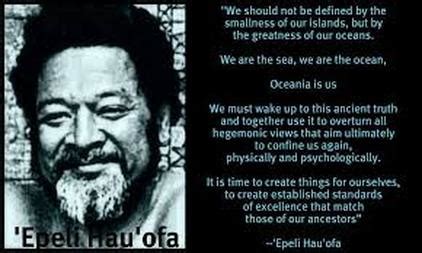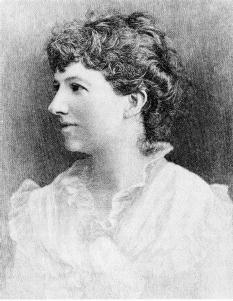Цитата Ральфа Уолдо Эмерсона
Другой ужас, который отпугивает нас от самоуверенности, — это наша последовательность; благоговение перед нашим прошлым действием или словом, потому что у глаз других нет других данных для вычисления нашей орбиты, кроме наших прошлых действий, и мы не хотим их разочаровывать.
Связанные цитаты
Прежде чем заключать мир, необходима война, и эта война должна вестись с самим собой. Наш злейший враг — это мы сами: наши недостатки, наши слабости, наши ограничения. А наш разум такой предатель! Что это делает? Оно скрывает наши недостатки даже от наших собственных глаз и указывает нам причину всех наших затруднений: других! Поэтому он постоянно вводит нас в заблуждение, не давая нам знать о настоящем враге, и подталкивает нас к другим, чтобы сражаться с ними, показывая их нам как наших врагов.
Можно быть честным каждый день. Можно жить так, чтобы другие могли доверять нам — могли доверять нашим словам, нашим мотивам и нашим действиям. Наш пример жизненно важен как для тех, кто сидит у наших ног, так и для тех, кто наблюдает со стороны. Наше постоянное самосовершенствование станет полярной звездой для тех, кто находится в сфере нашего влияния. Они дольше запомнят то, что увидели в нас, чем то, что услышали от нас. Наше отношение, наша точка зрения могут иметь огромное значение.
Откровение Сонми 451 Быть — значит быть воспринятым, и поэтому познать себя можно только глазами другого. Природа нашей бессмертной жизни заключается в последствиях наших слов и поступков, которые продолжаются и продолжаются во все времена. - Наша жизнь не принадлежит нам. От утробы до могилы мы связаны с другими, прошлыми и настоящими, и каждым преступлением и каждой добротой мы рождаем наше будущее.
Внутри нас много голосов. У нас есть голоса наших родителей, наших бабушек и дедушек, нашего общества, наших начальников, наших собственных правил и запретов, и наша самооценка находится внутри нас, во многом контролируя нас. Когда мы можем преодолеть все это и добраться до глубинной, основной части нас, в нашей душе раздается голос, который, я верю, связан с нашим Божественным или Высшим Я. Этот внутренний голос должен вести нас во всех аспектах нашей жизни.
То, что прошлое впереди, перед нами, — это представление о времени, которое помогает нам сохранять наши воспоминания и осознавать его настоящее. То, что позади нас [будущее], нельзя увидеть и легко забыть. То, что впереди нас [прошлое], не может быть так легко забыто или проигнорировано, потому что оно перед глазами нашего разума, всегда напоминая нам о своем присутствии. Прошлое живо в нас, поэтому в более чем метафорическом смысле мертвые живы — мы и есть наша история.
Если другие люди не понимают нашего поведения - ну и что? Их просьба о том, чтобы мы делали только то, что они понимают, является попыткой диктовать нам. Если это «асоциально» или «иррационально» в их глазах, пусть будет так. В основном они возмущаются нашей свободой и нашим мужеством быть собой. Мы никому не должны объяснений или отчета, пока наши действия не причиняют им вреда и не ущемляют их.
Недостаточно вести себя почтительно; мы должны чувствовать в своем сердце благоговение перед нашим Небесным Отцом и нашим Господом, Иисусом Христом. Благоговение проистекает из нашего восхищения и уважения к Божеству. Это то, что мы чувствуем в наших сердцах независимо от того, что происходит вокруг нас. Это также личная ответственность. Мы не можем обвинять других в нарушении нашего благоговейного отношения.
Эмоциональная зависимость противоположна эмоциональной силе. Это означает необходимость иметь других, чтобы выжить, желать, чтобы другие «делали это за нас», и полагаться на других, чтобы они давали нам представление о себе, принимали решения и заботились о нас в финансовом отношении. Когда мы эмоционально зависимы, мы обращаемся к другим за нашим счастьем, нашей концепцией «я» и нашим эмоциональным благополучием. Такая уязвимость требует поиска и зависимости от внешней поддержки для чувства собственного достоинства.
Мы с моим мужем [Джозефом Милларом] часто первыми читаем работы друг друга, и часто за нами остается последнее слово. Мы доверяем друг другу. У нас общая прошлая трудовая жизнь, наши воссоединенные семьи, а также наша жизнь учителей, и мы читаем большую часть одной и той же литературы и имеем схожую эстетику, так что в этом есть симпатия. Но мы не согласны, и это может быть плодотворным, даже если в данный момент это не так уж хорошо.
Память о нашем прошлом, постоянное ношение его с собой, может быть необходимым требованием для поддержания, как говорится, целостности личности. Чтобы «я» не сжималось, чтобы оно сохраняло свой объем, воспоминания нужно поливать, как цветы в горшках, а полив требует регулярного контакта со свидетелями прошлого, то есть с друзьями. . Они наше зеркало; наша память; мы ничего от них не просим, кроме того, чтобы они время от времени полировали зеркало, чтобы мы могли смотреть в него на себя.
Суть дела такова: всякое впечатление, пришедшее извне, будь то фраза, которую мы слышим, объект видения или испаряющееся в носу миазм, как только проникает в наше сознание, как оно оформляется в какой-то определенной форме. направлении или другом, устанавливая связь с уже имеющимися другими материалами и, наконец, производя то, что мы называем нашей реакцией. Конкретные связи, в которые он вступает, определяются нашим прошлым опытом и «ассоциациями» с ним настоящего впечатления.









































